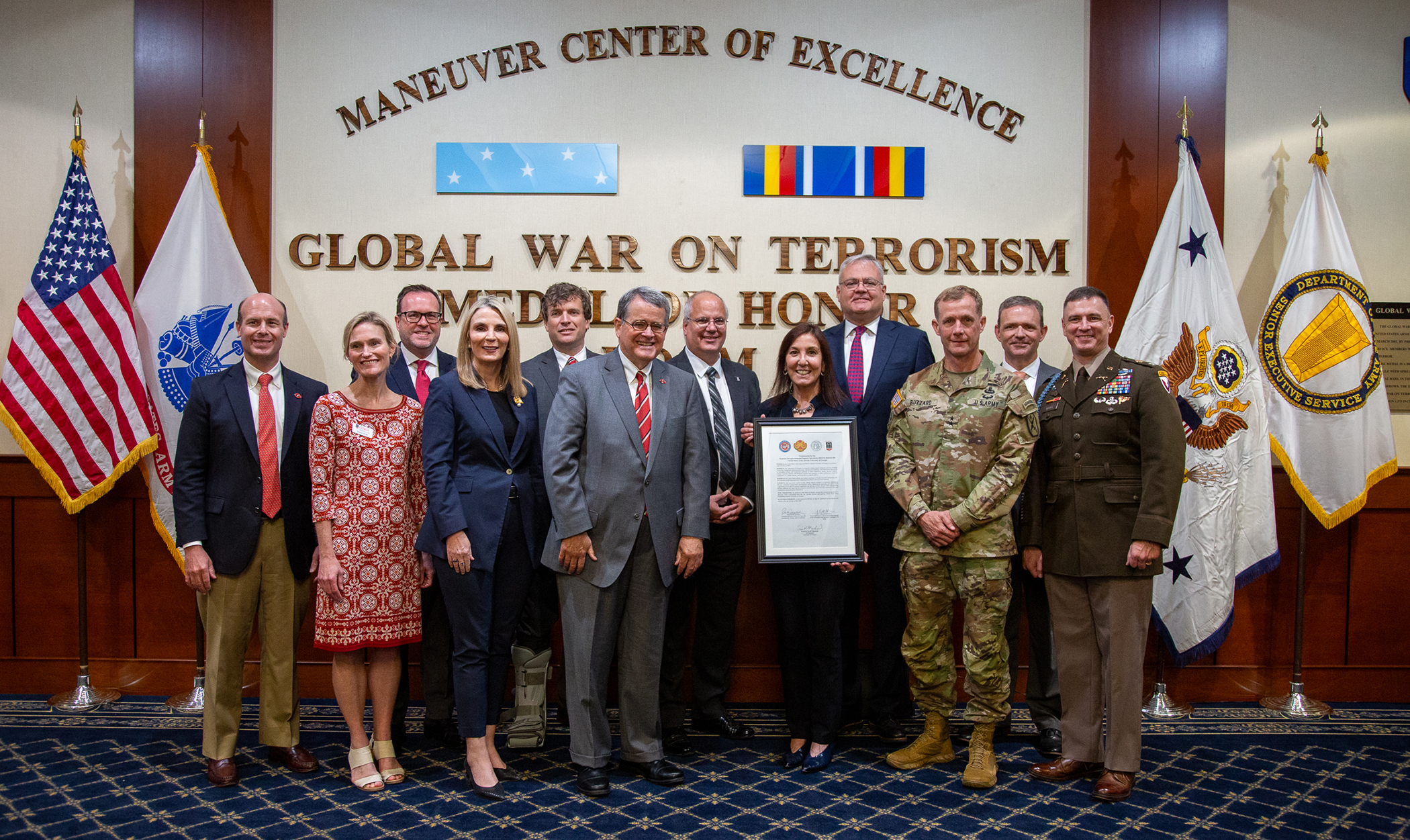The University of Georgia and the U.S. Army have signed a regional intergovernmental support agreement (RIGSA) to enhance the resilience of military installations and their surrounding communities. The signing ceremony was held at Fort Moore on Tuesday, July 2, at McGinnis-Wickham Hall.
Administered through the UGA Carl Vinson Institute of Government, this groundbreaking RIGSA — authorized for up to $100 million over 10 years — will streamline the ability of Army installations to obtain services from UGA and its partners.
Forts Eisenhower, Moore, Stewart, Jackson, Liberty, Novosel, Johnson and Redstone Arsenal and their surrounding communities are all expected to benefit from the RIGSA. The partnership may also expand to other installations across the continental U.S., Alaska, Hawaii and Puerto Rico as capacity allows.
Participating in the ceremony were UGA President Jere W. Morehead; Rachel Jacobson, assistant secretary of the Army for installations, energy and environment; J. Randall Robinson, executive deputy to the commanding general of the installation management command; and Col. Colin P. Mahle, Fort Moore garrison commander.
“In preparation for the 248th birthday of our nation, it is fitting that the oldest military branch and oldest public university should create this innovative partnership to engage installations and surrounding communities in improving economic, environmental and community resilience,” said Morehead.
Jacobson said intergovernmental support agreements are a valuable tool for partnering with communities on shared challenges. The agreement builds on the current work of UGA’s Defense Community Resilience Program, expanding its focus to eight installations and their surrounding communities.

“Under this new regional IGSA, Army and other installations in the Southeast will be able to engage UGA’s resilience professionals to identify current and future climate hazards and potential mitigation measures to benefit the broader defense community,” Jacobson said.
The Defense Community Resilience Program, housed in the UGA Institute of Government, works with military installations and surrounding communities to build long-term resilience. It engages UGA faculty and experts across Public Service and Outreach and academic units to provide community engagement, governmental policy, infrastructure planning, economic development and natural resource management expertise.
“We are already making a difference using nature-based solutions in many communities,” said Scott Pippin, UGA program leader. “This partnership leverages our ability to connect installations with resources that support local resilience, bolster economic development and enhance quality of life.”
Since Army installations are small cities, partnering with a land- and sea-grant university already serving hundreds of government entities makes sense.
“This agreement extends UGA’s resources and expertise to strengthen community and economic development in partnership with installations and their surrounding communities,” said Jennifer Frum, UGA’s vice president for public service and outreach.


